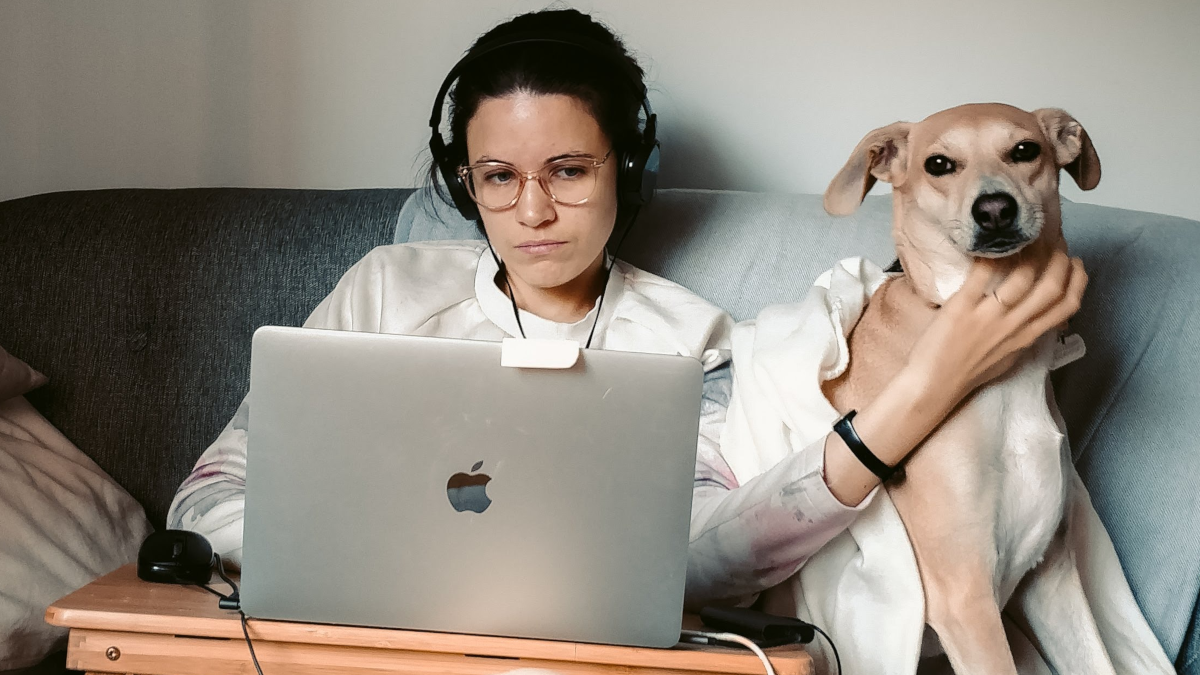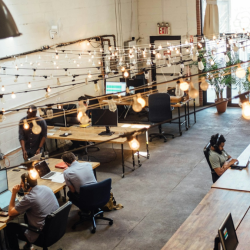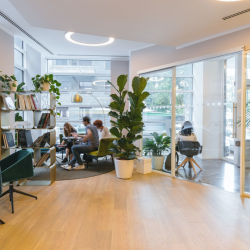In April 2020, according to the ONS, just under 40% of people in employment did some of their work from home due to Covid. If you’re reading this you are more than likely in that minority (and that’s really important to remember).
I’m going to focus on that minority (I’m in it too!), where we find ourselves today and the potential tomorrow brings.
While most have adopted some form of hybrid work option, there are those at the polar ends of the spectrum that are sticking to their guns about how they want to work — neither group is helpful and neither offer the solution. As always, the answer is probably somewhere in between.
At one end you have the people like Lord Sugar saying that anyone who works from home is ‘lazy’, so untrusting of people that the only way he believes people will work is if they are being watched. I disagree — if he wants the workplace to be efficient then maybe the focus should be on how meetings are run, to assess the best conditions for an employee to do their job, rather than worry about their time seated at their desk.
Employers should note that if they ask people to be in the office 100% of the time, they may find that they struggle to retain their staff, as the expectation now is that some form of flexibility should be offered. It’s quite an old-fashioned attitude.
At the opposite end, there are people demanding that it is their right to work from home every day and never go into the office ever again. Seems risky. Employers who don’t see employees that WFH 100% of the time, may question why they are paying a salary that includes a weighting for working in a city, for a commute. They may look elsewhere. After all, if a job can be done 100% from home, why does that home have to be within 40 miles of the office, why can’t it be done in Chile or South Africa?
There are other risks — a disappearing professional relationships between staff, limited learning from one another, less trust, a collapse of camaraderie, and not feeling part of a team. Zoom has killed serendipity — it doesn’t offer the coffee station chat, the water cooler moment, the corridor or reception discussion. Of course, we made it work when we all had to, but when we all were doing it, it was fine. Now we’re not all doing it, so the benefits of it have slipped quite considerably. If you’re Zooming into a meeting happening in the office, do we think that the Zoomers hold the same gravitas as those in person?
Which brings us neatly to the hybrid model, where most of us find ourselves
But we can’t just leave it there, thinking that we can drop a 5 day a week in the office model into a hybrid model and expect everything to work the same. It won’t. We have to ask how companies plan to deal with the challenges that hybrid creates, the changes it demands.
I like the hybrid model.
I’ve learned some things already:
- When I’m in the office, I put an ‘in the office’ on as I’m scheduling my time there to meet with colleagues, run planning, strategy and brainstorming sessions. The stuff with people. I very much believe in the Allen Curve theory which showed that proximity of staff is so crucial for information flow, for communication, which leads to improved innovation and productivity.
- When I’m at home I try to focus on my emails, or things I need to write (like this) where I need the headspace, the quietness. I can concentrate more. Also, if I have a day packed with Zoom calls, I’m at home. Better productivity.
- I can work ideas more in the office, but come up with more at home.
- I work longer hours when I’m at home — starting earlier as I don’t have to commute. Maybe for those days in the office, we could let people commute during their working hours – start the commute at 9, make sure the commute ends at 5? The workday then becomes the same length no matter if at home or at work. It’s a thought.
- Hybrid is rebalancing some of my employees’ relationship with work — for many years people have worked through their lunch, working late etc. If some WFH gives them some of that balance back, then that’s positive.
- When I’m feeling a bit lonely, I head in the office to get the buzz of being with a team and chatting casually about things. Better mental health.
- I pay people to do a job, not for where or indeed when they do it (if they want to pick up their kid, go to the gym, and want to work earlier/later or not for a few hours in the middle of the day, that’s fine. As long as all aspects of the job are done to the best of their ability (and that they realise that some of that may require them to be in the office) then I’m happy.
- I’m not going to force employees in (or out) on any particular days — that could break the flow of information between people. I want people to bump into different people on different days. More serendipity, more ideas.
- When I’m at home, I might put the dishwasher on, see my family more and have a better relationship with them. I will use less petrol, might put on the cricket in the background, and this is also good for my mental health. I am a nicer person as a result, at home and at work — this is good for everyone.
There is a long way to go, and I’m still learning, as we all are. It’s crucial we keep learning and sharing ideas, discussing what is and isn’t working. It’s a tremendous opportunity to rebalance our relationship with work, to change for the better.
The final result for those more progressive companies could be more efficient, more productive, more profitable organisations, run by healthier, happier staff.
What’s not to like about that?
Featured image: Cristian Tarzi / Unsplash































